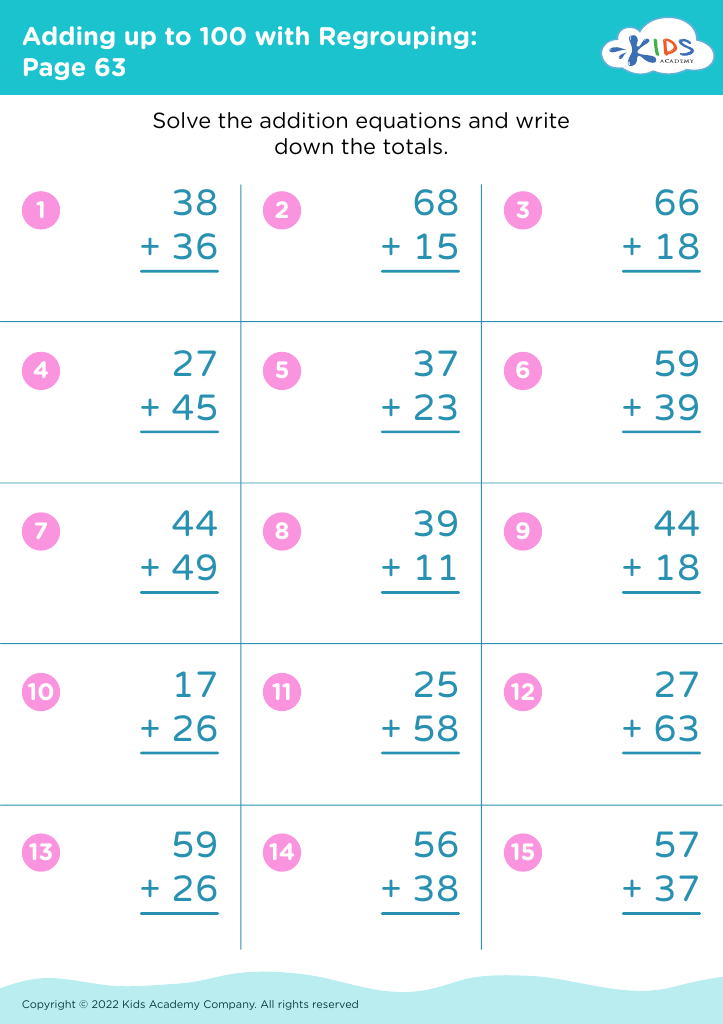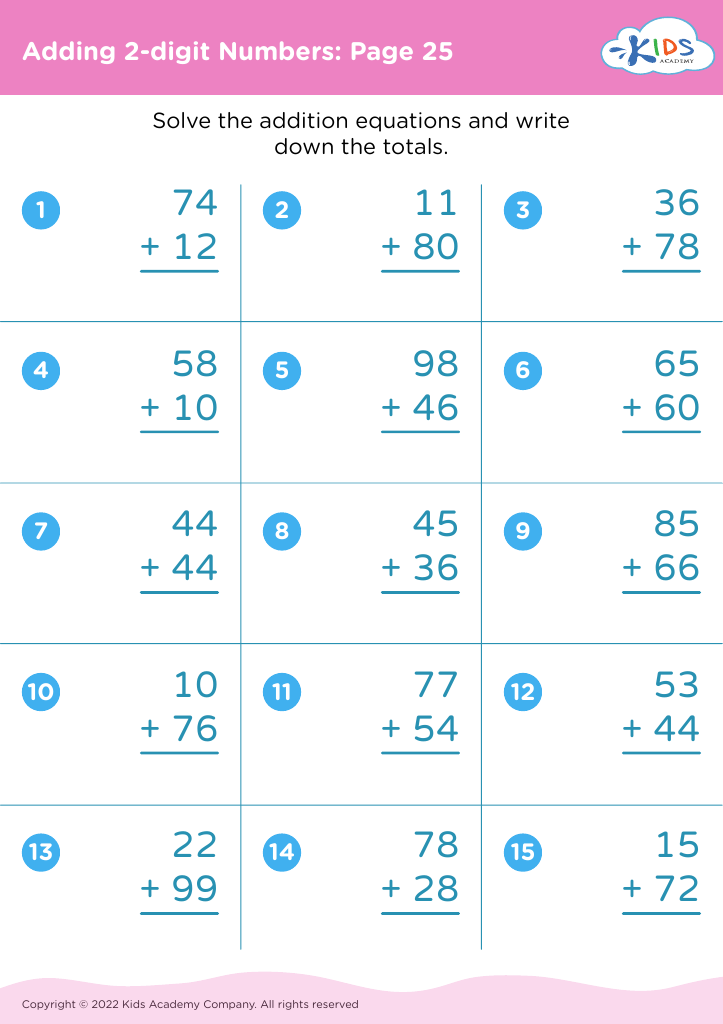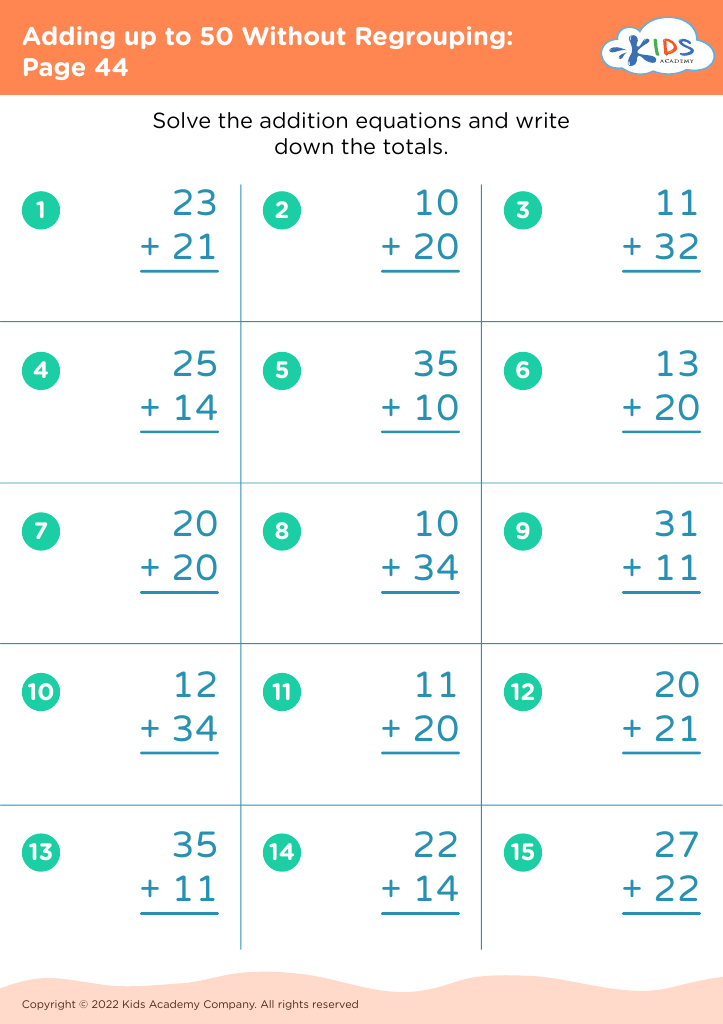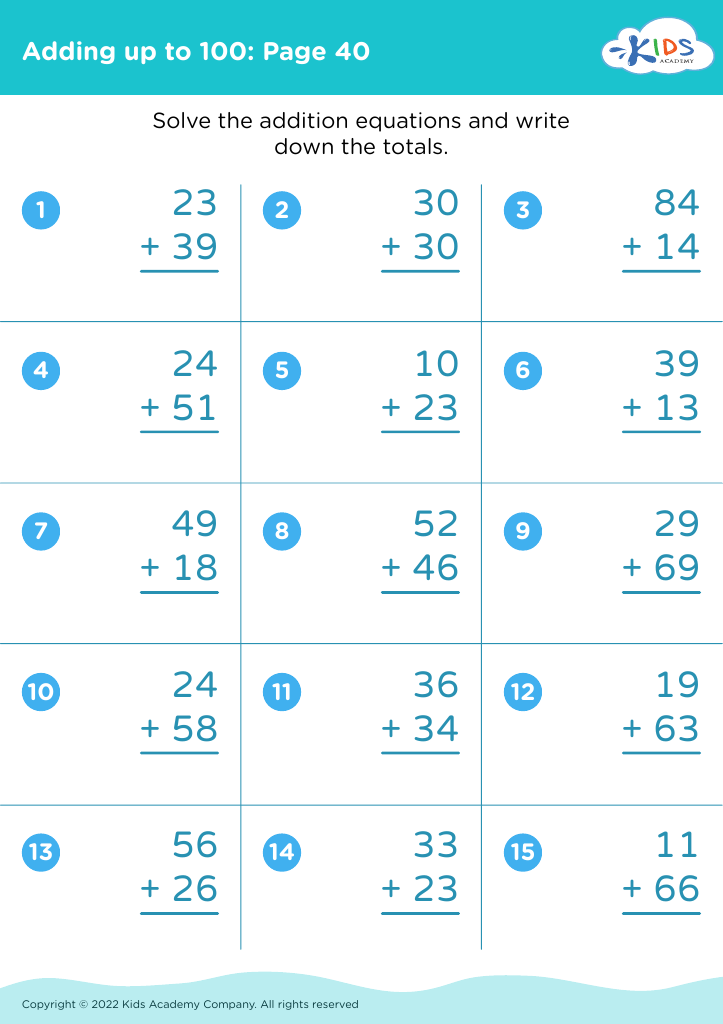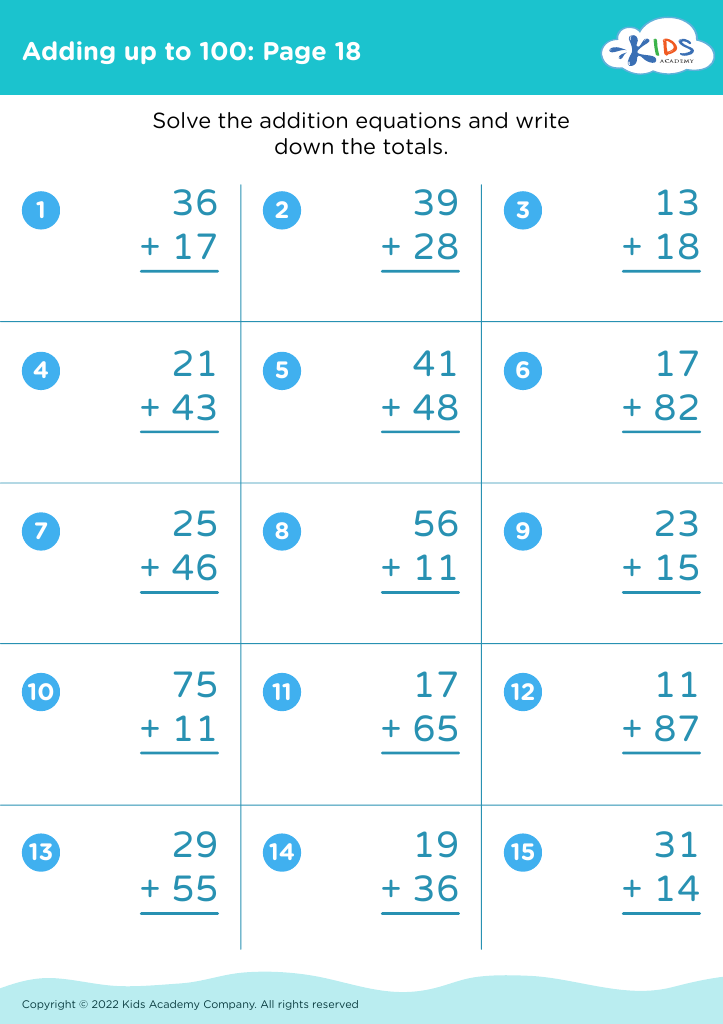Enhance number recognition Addition & Subtraction Worksheets for Ages 4-9
17 filtered results
-
From - To
Unlock your child’s potential with our "Enhance Number Recognition: Addition & Subtraction Worksheets for Ages 4-9." These expertly designed worksheets make learning math fun and engaging, ensuring young learners build a solid foundation in number recognition, addition, and subtraction. Perfect for preschool to elementary school children, our activities encourage hands-on practice, boosting confidence and skill proficiency. Each worksheet is tailored to various learning stages, helping kids gradually progress at their own pace. Watch your child turn problem-solving into an exciting adventure as they explore numbers, strengthen essential math skills, and develop a lifelong love for learning with Kids Academy!
Developing strong foundational skills in number recognition, addition, and subtraction for children aged 4-9 is crucial for several reasons. Firstly, these skills are the building blocks of mathematical understanding. Mastery in these areas sets the stage for more complex mathematical concepts, easing future learning. When children feel confident in their ability to identify numbers and solve basic arithmetic problems, their overall academic confidence grows, which positively impacts other areas of learning.
Number recognition aids in daily activities such as telling time, reading labels, and understanding monetary values. Addition and subtraction, on the other hand, are essential for everyday problem-solving tasks and decision-making processes, such as sharing, playing games, and managing a small budget.
Early proficiency in these skills ensures children do not fall behind in subsequent grades, where mathematical operations and problem-solving skills become progressively more complex. Incorporating fun and engaging methods to enhance these skills—such as through games, interactive activities, and practical applications—makes learning enjoyable and reduces anxiety linked to mathematics.
In essence, nurturing these foundational competencies during the formative years creates a supportive learning environment, promotes numeracy literacy, and helps foster a lifelong positive attitude towards mathematics, preparing children to succeed academically and in real-life scenarios.




